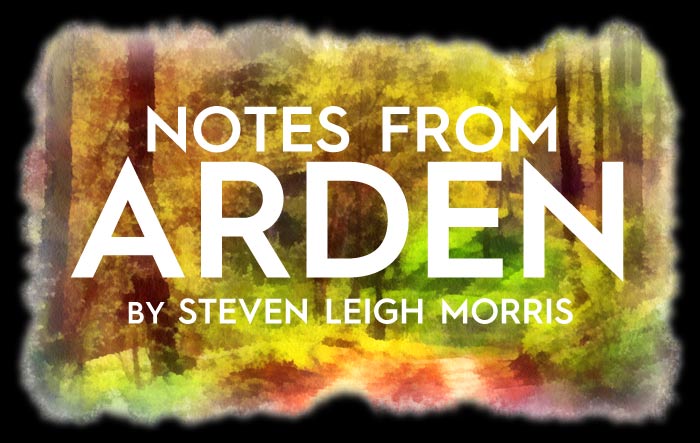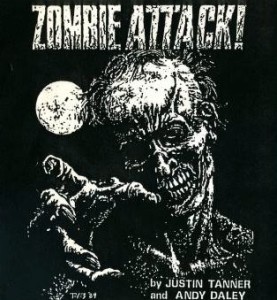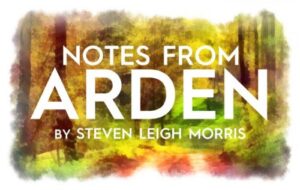Remembering Diana Gibson (1944-2014)
Recollections of Justin Tanner and Deborah Lawlor
By Steven Leigh Morris
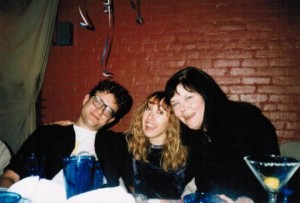
Any of us who have been around this community for a while will remember producer, writer, actress and longtime Fountain Theatre subscriptions director Diana Gibson as “a fixture.” She died July 17 at the age of 69 at Cedars-Sinai Medical Center from multiple complications following pneumonia.
During the 1980s, she was associate artistic director (with Ted Schmitt) at Hollywood’s Cast Theatre, where she helped developed 10 plays by her obviously favorite scribe, Justin Tanner. It seemed like she was always in that vital but dumpy building on El Centro Avenue near Melrose, a fixture: a touch disheveled, sitting and walking with a slump, cigarette dangling from her lips, offering a beer to anybody who walked into the place on a hot afternoon. She pulled off a unique double-act of being both chipper and churlish in the same turn, as though the world were crushing her while she more or less winked back. She didn’t actually wink. She glared, but with a twinkle in her eye that said, “You know I’m kidding, right?”
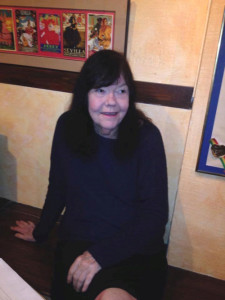
Oh, the stories we heard, the rumor mill, spewing out yarns of the tempestuous, possessive, passive-aggressive, abusive rapport she had with Justin. The rumors became myths on the scale of the ancient Greek ones, as Justin churned out hit after hit after hit. A colleague at the LA Weekly described Justin as a modern-day Molière. And as Justin admits below, for one of those plays, Diana might as well have shared the writing credit.

Diana Gibson came to L.A. from Iowa in order to attend USC, where she earned MFAs in both Drama and Painting. She wrote, directed and performed for the USC-USA Festival Theatre Company. One of her plays (The Word) went on to performances at the Jeanetta Cochran Theatre in London and at the Edinburgh Fringe Festival. Her play about the history of art (Words and Pictures) toured Germany, the Cambridge Arts Theatre in England, and the Edinburgh Fringe.
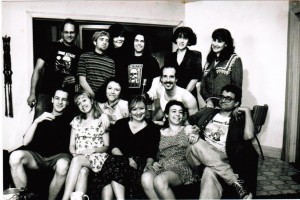
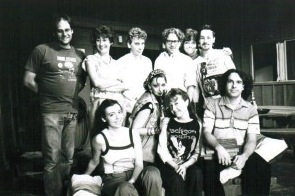
During the span of 10 years after her associate Ted Schmitt died of complications from AIDS in 1990, Diana became the Cast Theatre’s sole artistic director. That theater eventually closed its doors, and Diana was later hired by the Fountain Theatre as subscriptions manager. You’d be hard pressed to see a show at the Fountain over the past decade when Diana wasn’t in the lobby, a fixture, with that oh-so-familiar surly sparkle, calmly guiding patrons to their seats while making droll quips.
What strikes The Fountain Theatre’s co-artistic director Deborah Lawlor most about Diana was her prodigious memory:
“We have about 1600 subscribers, and she knew all of them by first and last name, plus the names of their children and friends, and always greeting them by name when they came to the theater. At the same time, she had this grumpy personality, she appeared to be grumpy, but she didn’t mean it insultingly, it was her form of humor.
“For one performance of The Normal Heart, the house manager didn’t show up. Diana was doing the seating. It was a slow process but she kept the whole group of patrons coming in, in stitches!
“Patrons just looked forward to seeing her, and that helped bring them to the theater, which was wonderful. She was more than a fixture. She was great personality.
“Another house manage mentioned that she and Diana would bump to 80s music before the show.”
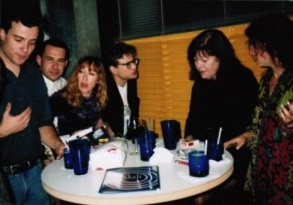
Justin Tanner gets to the heart of his Greek myth conflicts with Diana, in the following tribute:
“Diana Gibson was the first producer I’d ever met who was seriously enthusiastic about my work. She actually thought I was the greatest living playwright and she would tell me so frequently, usually after some reading of a new pay had come up short and she was about to launch into a brutal three hour note-session. She didn’t ever flatter people but she did like to remind you that you were great just before she tore you into little tiny shreds. Diana had a way of telling the truth that felt like a sucker punch every single time. And then she’d come up with a bunch of solutions to fix the play and most of them would work.
“On the easy shows (Happytime Xmas, Teen Girl, Pot Mom) we’d hardly interact at all. She really knew how to back off when things were clicking. But on the difficult shows (Bitter Women, Intervention, Coyote Woman) she would be involved early and often. I would write another draft, she’d hate it; I’d hang my head and try again.
“There was one play in particular where a week before opening, after we’d done yet another dreadful run-through and the show wasn’t getting any better, the cast was sent home and Diana and me sat in that office all night while she dictated a brand new draft of the entire play to me, line by line. The next day when we presented the new script to the cast there was practically a mutiny. But after they read it out loud, and saw how suddenly all the script’s issues were fixed, everyone rallied and we opened the show. Not one of the best plays; but not a disaster. And co-written (at the very least) by Diana Gibson.
The last time I did a reading for Diana was in 1999 (an early version of my 2010 play Procreation.) During our notes session she told me that there was only “one good line in the entire show.” And it didn’t matter that she was probably right, I suddenly didn’t want to play any more. I wanted to, as I told her ‘fail on my own terms,’ which I have proceeded to do with regularity ever since.”
Editor’s Note: After eight years of “non employment,” Justin Tanner was recently hired by a major network as a writer on a new half-hour television show.
A memorial for Diana Gibson will be held at the Fountain Theatre on Saturday, August 2, at 1 p.m. info@fountaintheatre.com or call (323) 663-1525.
Earlier Notes From Arden:
Independent Shakespeare Company: How soaring economic disparity is drowning local theater, and how Independent Shakespeare Company has found a model to survive.
